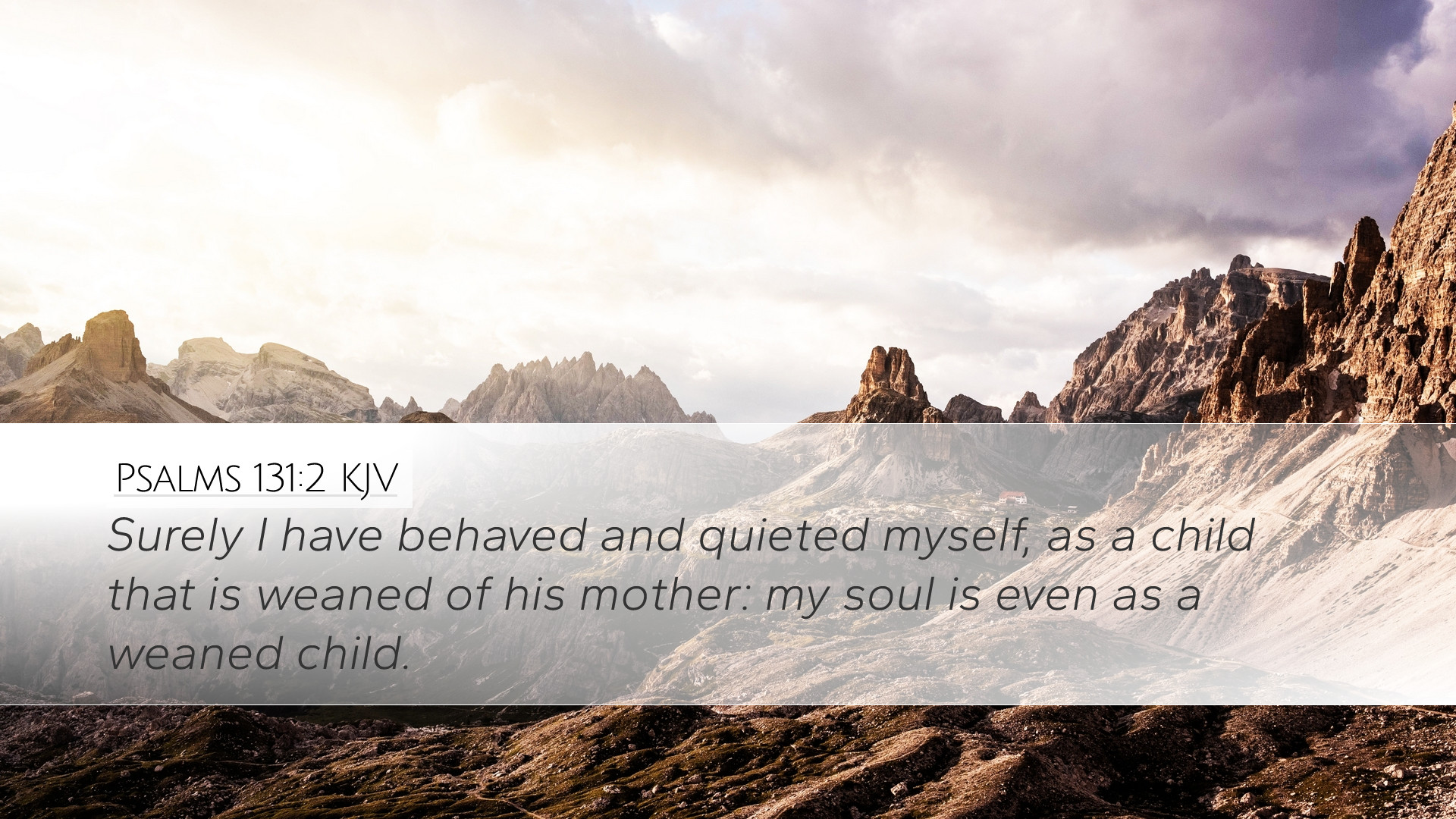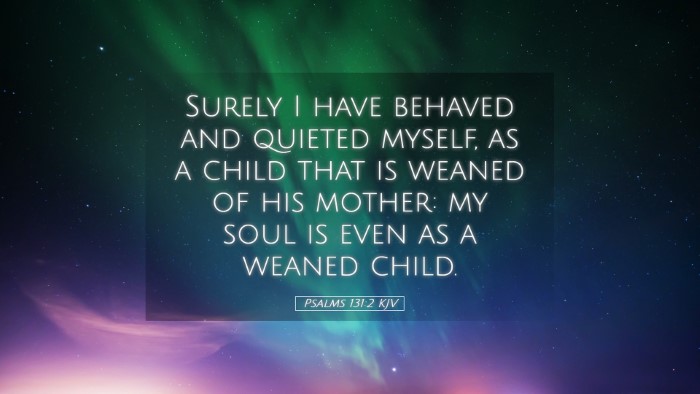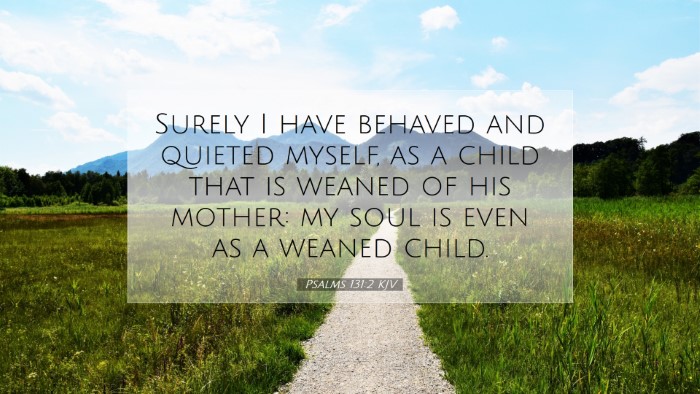Psalms 131:2 Commentary
Verse: "Surely I have behaved and quieted myself, as a child that is weaned of his mother: my soul is even as a weaned child." (Psalms 131:2)
Introduction
The poetic beauty of Psalm 131 encapsulates the essence of humility and trust in God. It portrays a profound spiritual state of contentment and calmness, likened to that of a weaned child. This verse stands as a beacon for believers, urging them towards a life of simplicity and childlike faith.
Contextual Analysis
The Psalm is attributed to David, reflecting his deep devotion to God and his understanding of the human condition. In the preceding verses and throughout the rest of the Psalm, David expresses his humility and reliance on God, contrasting with pride and self-exaltation.
Matthew Henry's Insights
According to Matthew Henry, this verse presents a metaphorical portrayal where the Psalmist expresses how he "behaved and quieted" his heart, akin to a child who has moved past the dependency of infancy. Henry emphasizes the need for Christians to cultivate a spirit of humility:
- Humility: David denounces vain ambition, suggesting that true greatness is found in humility before God.
- Contentment: The image of a weaned child signifies a state of restfulness and satisfaction in God's providence.
- Trust in God: Just as a child relies on a mother's love, so should believers trust in their Heavenly Father.
Albert Barnes' Interpretation
Albert Barnes provides a complementary analysis, dissecting the essence of the weaned child metaphor. Barnes highlights the transformation that occurs during the weaning process, which signifies a shift from neediness to independence:
- Spiritual Maturity: The weaned child represents those who have matured in their faith, transitioning from a state of constant need to one of fulfillment in God's presence.
- Quietness of Soul: Barnes insists that a quieted soul reflects a deep-seated peace that comes from surrendering one's will and desires to God.
- Attitude Towards Life: This maturity also involves a proper attitude towards life's adversities, recognizing God's sovereignty in all circumstances.
Adam Clarke's Reflection
Adam Clarke elaborates further on the implications of being "weaned." He notes that:
- Spiritual Dependency: A weaned child no longer craves milk but is satisfied with sustenance. Clarke parallels this to seeking spiritual food from the Word of God instead of earthly pleasures.
- Inner Peace: The state of being weaned represents a tranquility that surpasses worldly understanding, cultivated through a life rooted in prayer and meditation.
- Acceptance of God's Will: Embracing one’s circumstances in life with peace, much like a weaned child who trusts in their mother for care and provision.
Theological Implications
The implications of Psalm 131:2 extend beyond individual piety, resonating with broader theological principles:
- The Nature of God: The verse reinforces the characteristics of God as a nurturing figure, one who provides comfort and sustenance.
- Human Condition: It reflects the journey every believer takes from reliance on self (or worldly things) to a place of peace in God's presence.
- Christian Discipleship: Discipleship involves a lifelong process of growing away from immature dependencies to a mature relationship with God.
Practical Applications
The profound truths found in this verse are not only for theological contemplation but also practical application in daily life:
- Fostering Humility: Believers should strive to embrace humility, recognizing their inherent need for God in all things.
- Cultivating Trust: Like a child trusts a parent, individuals must learn to trust in God’s plan, even amidst uncertainty.
- Emphasizing Contentment: The pursuit of material goods and status should be tempered by a contented spirit that rests in God's provisions.
Conclusion
Psalms 131:2 conveys a rich tapestry of spiritual truth and wisdom. By embodying the qualities of a weaned child, believers can navigate life's challenges with calm assurance and unwavering faith. The amalgamation of insights from Matthew Henry, Albert Barnes, and Adam Clarke provides a comprehensive understanding of this beautiful verse, encouraging all to find their peace and security solely in the Lord.


